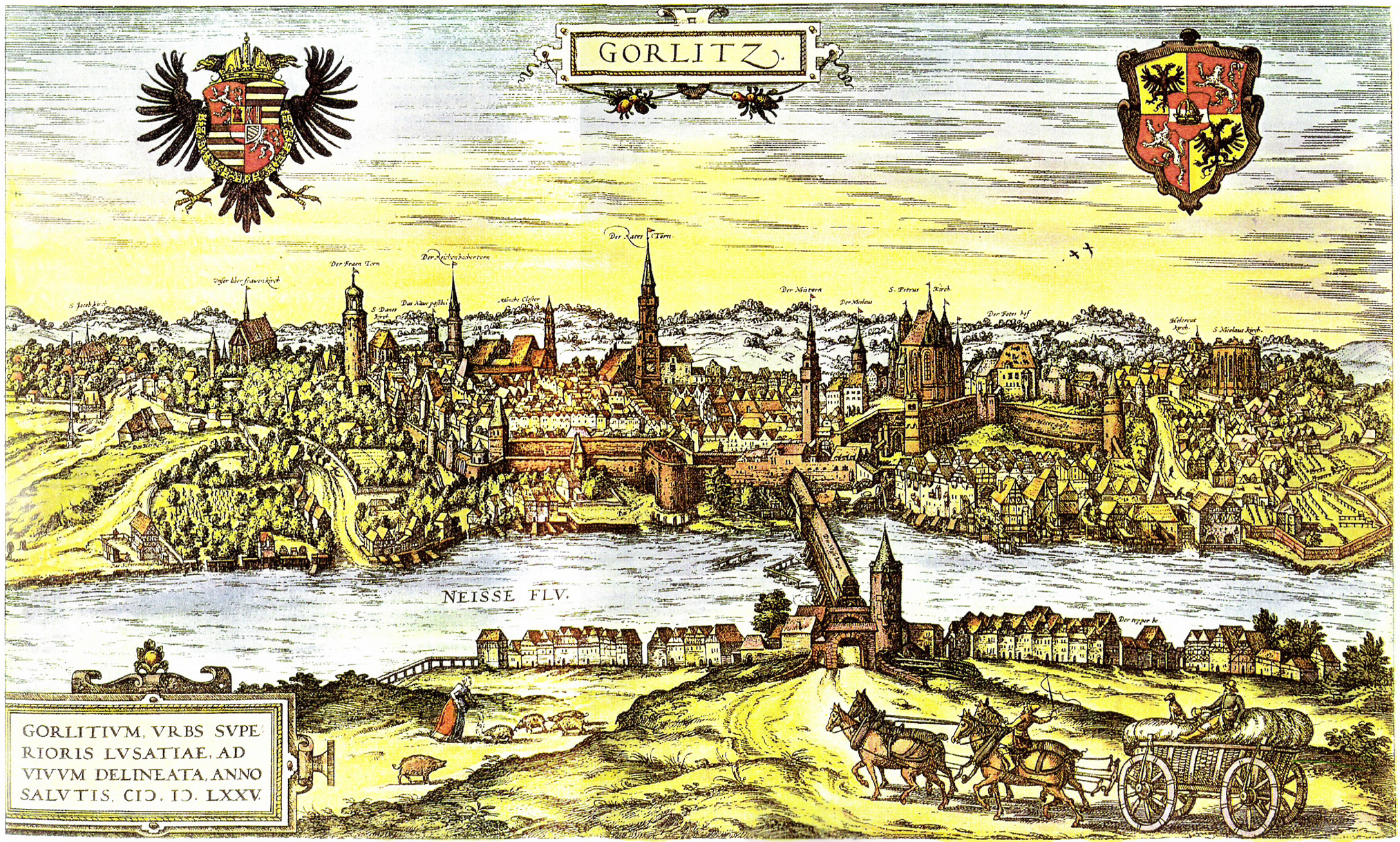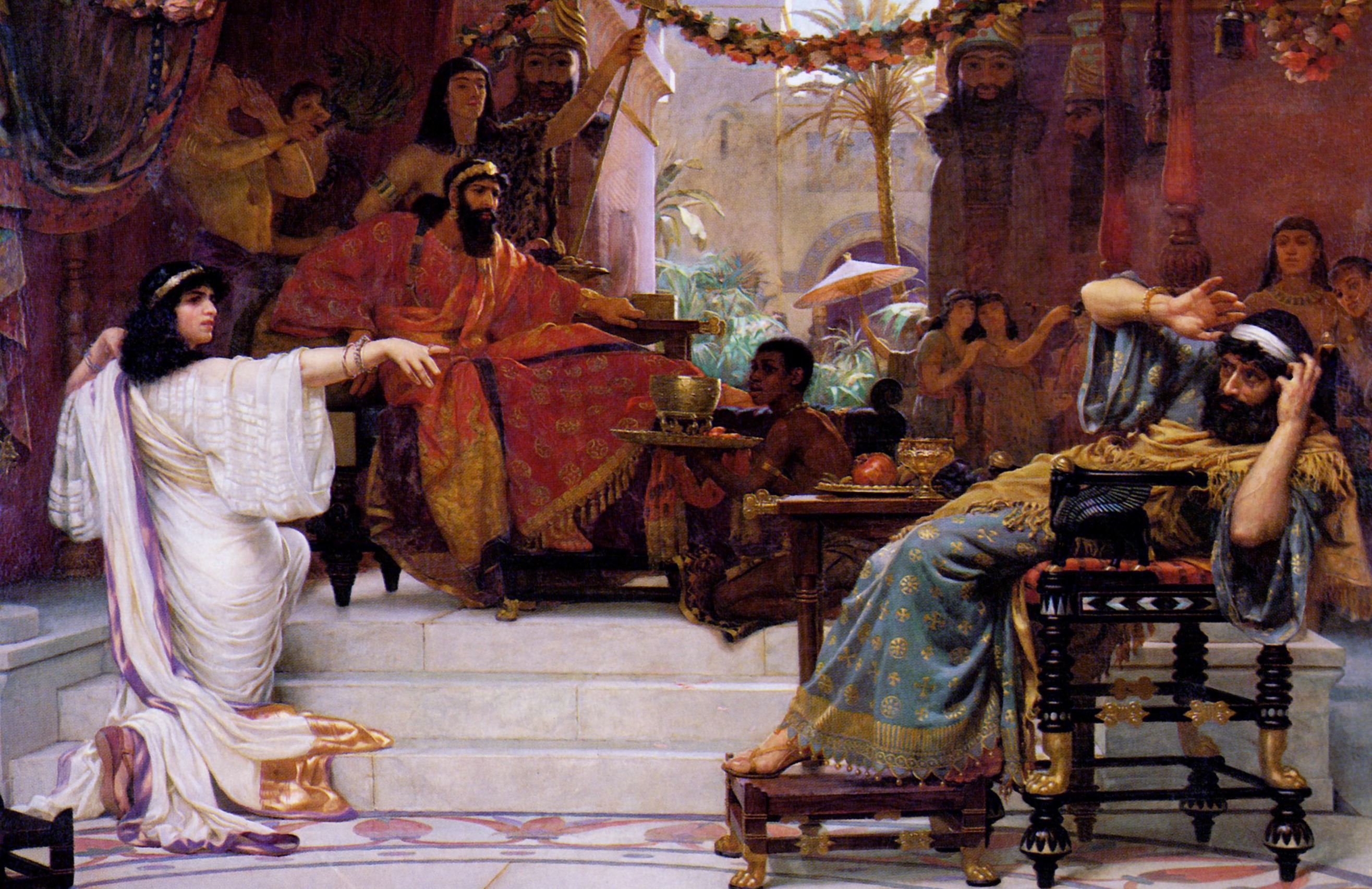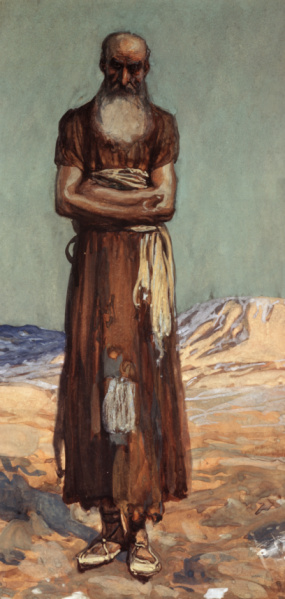|
Paul Haupt
Hermann Hugo Paul Haupt (25 November 1858 in Görlitz – 15 December 1926 in Baltimore, Maryland) was a Semitic scholar, one of the pioneers of Assyriology in the United States. He studied at the universities of Berlin and Leipzig. In 1880 he became Privatdozent in the University of Göttingen and from 1883 to 1889 was assistant professor of Assyriology. In 1883 he became professor of Semitic languages at Johns Hopkins University, but until 1889 continued to lecture in the summer at Göttingen. He introduced the principle of the neogrammarians into Semitic philology, and discovered the Sumerian language in 1880. In addition to numerous smaller articles, he projected and edited the '' Polychrome Bible'', a critical edition of the Hebrew text of the Old Testament, and a new English translation with notes. A unique feature of this edition is the use of different colors to distinguish the various sources and component parts in the Old Testament books—each one of which is entrust ... [...More Info...] [...Related Items...] OR: [Wikipedia] [Google] [Baidu] |
Görlitz
Görlitz (; pl, Zgorzelec, hsb, Zhorjelc, cz, Zhořelec, :de:Ostlausitzer Mundart, East Lusatian dialect: ''Gerlz'', ''Gerltz'', ''Gerltsch'') is a town in the Germany, German state of Saxony. It is located on the Lusatian Neisse River, and is the largest town in Upper Lusatia as well as the second-largest town in the region of Lusatia, after Cottbus. Görlitz is the easternmost town in Germany (easternmost village is Zentendorf, Zentendorf (Šćeńc)), and lies opposite the Poland, Polish town of Zgorzelec, which was the eastern part of Görlitz until 1945. The town has approximately 56,000 inhabitants, which make Görlitz the List of cities in Saxony by population, sixth-largest town in Saxony. It is the seat of the Görlitz (district), district of Görlitz. Together with Zgorzelec, it forms the Euro City of Görlitz/Zgorzelec, which has a combined population of around 86,000. While not Sorbian languages, Lusatiophone itself, the town is situated just east of the Sorbian la ... [...More Info...] [...Related Items...] OR: [Wikipedia] [Google] [Baidu] |
Friedrich Delitzsch
Friedrich Delitzsch (; 3 September 1850 – 19 December 1922) was a German Assyriologist. He was the son of Lutheran theologian Franz Delitzsch (1813–1890). Born in Erlangen, he studied in Leipzig and Berlin, gaining his habilitation in 1874 as a lecturer of Semitic languages and Assyriology in Leipzig. In 1885 he became a full professor at Leipzig, afterwards serving as a professor at the Universities of Breslau (1893) and Berlin (1899). He was co-founder of the ''Deutsche Orient-Gesellschaft'' (German Oriental Society) and director of the '' Vorderasiatische Abteilung'' (Near Eastern Department) of the Royal Museums. Bible-Babel Controversy Friedrich Delitzsch specialized in the study of ancient Middle Eastern languages, and published numerous works on Assyrian language, history and culture. He is remembered today for his scholarly critique of the Old Testament. In a 1902 controversial lecture titled "Babel and Bible", Delitzsch maintained that many Old Testament writings ... [...More Info...] [...Related Items...] OR: [Wikipedia] [Google] [Baidu] |
German Assyriologists
German(s) may refer to: * Germany (of or related to) **Germania (historical use) * Germans, citizens of Germany, people of German ancestry, or native speakers of the German language ** For citizens of Germany, see also German nationality law **Germanic peoples (Roman times) * German language **any of the Germanic languages * German cuisine, traditional foods of Germany People * German (given name) * German (surname) * Germán, a Spanish name Places * German (parish), Isle of Man * German, Albania, or Gërmej * German, Bulgaria * German, Iran * German, North Macedonia * German, New York, U.S. * Agios Germanos, Greece Other uses * German (mythology), a South Slavic mythological being * Germans (band), a Canadian rock band * "German" (song), a 2019 song by No Money Enterprise * ''The German'', a 2008 short film * "The Germans", an episode of ''Fawlty Towers'' * ''The German'', a nickname for Congolese rebel André Kisase Ngandu See also * Germanic (other) * Germa ... [...More Info...] [...Related Items...] OR: [Wikipedia] [Google] [Baidu] |
American Assyriologists
American(s) may refer to: * American, something of, from, or related to the United States of America, commonly known as the "United States" or "America" ** Americans, citizens and nationals of the United States of America ** American ancestry, people who self-identify their ancestry as "American" ** American English, the set of varieties of the English language native to the United States ** Native Americans in the United States, indigenous peoples of the United States * American, something of, from, or related to the Americas, also known as "America" ** Indigenous peoples of the Americas * American (word), for analysis and history of the meanings in various contexts Organizations * American Airlines, U.S.-based airline headquartered in Fort Worth, Texas * American Athletic Conference, an American college athletic conference * American Recordings (record label), a record label previously known as Def American * American University, in Washington, D.C. Sports teams Soccer * B ... [...More Info...] [...Related Items...] OR: [Wikipedia] [Google] [Baidu] |
1926 Deaths
Nineteen or 19 may refer to: * 19 (number), the natural number following 18 and preceding 20 * one of the years 19 BC, AD 19, 1919, 2019 Films * ''19'' (film), a 2001 Japanese film * ''Nineteen'' (film), a 1987 science fiction film Music * 19 (band), a Japanese pop music duo Albums * ''19'' (Adele album), 2008 * ''19'', a 2003 album by Alsou * ''19'', a 2006 album by Evan Yo * ''19'', a 2018 album by MHD * ''19'', one half of the double album ''63/19'' by Kool A.D. * ''Number Nineteen'', a 1971 album by American jazz pianist Mal Waldron * ''XIX'' (EP), a 2019 EP by 1the9 Songs * "19" (song), a 1985 song by British musician Paul Hardcastle. * "Nineteen", a song by Bad4Good from the 1992 album '' Refugee'' * "Nineteen", a song by Karma to Burn from the 2001 album ''Almost Heathen''. * "Nineteen" (song), a 2007 song by American singer Billy Ray Cyrus. * "Nineteen", a song by Tegan and Sara from the 2007 album '' The Con''. * "XIX" (song), a 2014 song by Slipkn ... [...More Info...] [...Related Items...] OR: [Wikipedia] [Google] [Baidu] |
1858 Births
Events January–March * January – **Benito Juárez (1806–1872) becomes Liberal President of Mexico. At the same time, conservatives install Félix María Zuloaga (1813–1898) as president. **William I of Prussia becomes regent for his brother, Frederick William IV, who had suffered a stroke. * January 9 ** British forces finally defeat Rajab Ali Khan of Chittagong ** Anson Jones, the last president of the Republic of Texas, commits suicide. * January 14 – Orsini affair: Felice Orsini and his accomplices fail to assassinate Napoleon III in Paris, but their bombs kill eight and wound 142 people. Because of the involvement of French émigrés living in Britain, there is a brief anti-British feeling in France, but the emperor refuses to support it. * January 25 – The ''Wedding March'' by Felix Mendelssohn becomes a popular wedding recessional, after it is played on this day at the marriage of Queen Victoria's daughter Victoria, Princess Royal, to Pri ... [...More Info...] [...Related Items...] OR: [Wikipedia] [Google] [Baidu] |
Book Of Micah
The Book of Micah is the sixth of the Twelve Minor Prophets, twelve minor prophets in the Hebrew Bible. Ostensibly, it records the sayings of Micah (prophet), Micah, whose name is ''Mikayahu'' ( he, מִיכָיָ֫הוּ), meaning "Who is like Yahweh?", an 8th-century BCE prophet from the village of Moresheth-Gath, Moresheth in kingdom of Judah, Judah (Hebrew name from the opening verse: מיכה המרשתי). The book has three major divisions, chapters 1–2, 3–5 and 6–7, each introduced by the word "Hear," with a pattern of alternating announcements of doom and expressions of hope within each division. Micah reproaches unjust leaders, defends the rights of the poor against the plutocracy, rich and powerful; while looking forward to a world at peace centered on Zion under the leadership of a new Davidic monarch.Sweeney (2000), pp. 341–42 While the book is relatively short, it includes lament (1.8–16; 7.8–10), theophany (1.3–4), hymnic prayer of petition and confid ... [...More Info...] [...Related Items...] OR: [Wikipedia] [Google] [Baidu] |
Esther
Esther is the eponymous heroine of the Book of Esther. In the Achaemenid Empire, the Persian king Ahasuerus seeks a new wife after his queen, Vashti, is deposed for disobeying him. Hadassah, a Jewess who goes by the name of Esther, is chosen to fulfill this role due to her beauty. Ahasuerus' grand vizier, Haman, is offended by Esther's cousin and guardian, Mordecai, due to his refusal to prostrate himself before Haman. Consequently, Haman plots to have all the Jewish subjects of Persia killed, and convinces Ahasuerus to permit him to do so. However, Esther foils the plan by revealing Haman's eradication plans to Ahasuerus, who then has Haman executed and grants permission to the Jews to kill their enemies instead, as royal edicts (including the order for eradication issued by Haman) cannot be revoked under Persian law. Her story provides the traditional explanation for the Jewish holiday of Purim, celebrated on the date given in the story for when Haman's order was to go into ... [...More Info...] [...Related Items...] OR: [Wikipedia] [Google] [Baidu] |
Nahum
Nahum ( or ; he, נַחוּם ''Naḥūm'') was a minor prophet whose prophecy is recorded in the ''Tanakh'', also called the Hebrew Bible and The Old Testament. His book comes in chronological order between Micah and Habakkuk in the Bible. He wrote about the end of the Assyrian Empire, and its capital city, Nineveh, in a vivid poetic style. Life Little is known about Nahum's personal history. His name means "comforter," and he was from the town of Alqosh (Nahum 1:1), which scholars have attempted to identify with several cities, including the modern Alqosh in northern Iraq and Capernaum of northern Galilee. He was a very nationalistic Hebrew, however, and lived amongst the Elkoshites in peace. Nahum, called "the Elkoshite", is the seventh in order of the minor prophets. Works Nahum's writings could be taken as prophecy or as history. One account suggests that his writings are a prophecy written in about 615 BC, just before the downfall of Assyria, while another account sugge ... [...More Info...] [...Related Items...] OR: [Wikipedia] [Google] [Baidu] |
Ecclesiastes
Ecclesiastes (; hbo, קֹהֶלֶת, Qōheleṯ, grc, Ἐκκλησιαστής, Ekklēsiastēs) is one of the Ketuvim ("Writings") of the Hebrew Bible and part of the Wisdom literature of the Christian Old Testament. The title commonly used in English is a Latin transliteration of the Greek translation of the Hebrew word ( or ). An unnamed author introduces "The words of Kohelet, son of David, king in Jerusalem" ( 1:1) and does not use his own voice again until the final verses (12:9–14), where he gives his own thoughts and summarises the statements of Kohelet; the main body of the text is ascribed to Kohelet himself. Kohelet proclaims (1:2) "Vanity of vanities! All is futile!"; the Hebrew word , "vapor", can figuratively mean "insubstantial", "vain", "futile", or "meaningless". Given this, the next verse presents the basic existential question with which the rest of the book is concerned: "What profit hath a man for all his toil, in which he toils under the sun?", expre ... [...More Info...] [...Related Items...] OR: [Wikipedia] [Google] [Baidu] |
Canticle
A canticle (from the Latin ''canticulum'', a diminutive of ''canticum'', "song") is a hymn, psalm or other Christianity, Christian song of praise with lyrics usually taken from biblical or holy texts. Canticles are used in Christian liturgy. Catholic Church Prior to the Pope Pius X's Reform of the Roman Breviary by Pope Pius X, 1911 reforms, a single cycle of seven canticles was used at Lauds: * Sunday – The Song of the Three Holy Children () * Monday – The Song of Isaiah the Prophet () * Tuesday – The Song of Hezekiah () * Wednesday – The Song of Hannah () * Thursday – The (First) Song of the sea, Song of Moses () * Friday – The Prayer of Habakkuk () * Saturday – The (Second) Song of Moses () These canticles are rather long, and the weekday ones display something of a penitential theme, but some were not often used, as all feasts, and weekdays in Eastertide used the Canticle of Daniel, the Sunday canticle. The 1911 reform introduced for weekdays not of penitenti ... [...More Info...] [...Related Items...] OR: [Wikipedia] [Google] [Baidu] |
Gilgamesh
sux, , label=none , image = Hero lion Dur-Sharrukin Louvre AO19862.jpg , alt = , caption = Possible representation of Gilgamesh as Master of Animals, grasping a lion in his left arm and snake in his right hand, in an Assyrian palace relief (713–706 BC), from Dur-Sharrukin, now held in the Louvre , reign=c. 2900–2700 BC ( EDI), predecessor = Dumuzid, the Fisherman (as Ensi of Uruk) , consort = , siblings = , successor = Ur-Nungal Gilgamesh ( akk, , translit=Gilgameš; originally sux, , translit= Bilgames)). His name translates roughly as "The Ancestor is a Young-man", from ''Bil.ga'' "Ancestor", Elder and ''Mes/Mesh3'' "Young-Man". See also . was a hero in ancient Mesopotamian mythology and the protagonist of the ''Epic of Gilgamesh'', an epic poem written in Akkadian during the late 2nd millennium BC. He was possibly a historical king of the Sumerian city-state of Uruk, who was posthumously deified. His rule probably would have taken p ... [...More Info...] [...Related Items...] OR: [Wikipedia] [Google] [Baidu] |







